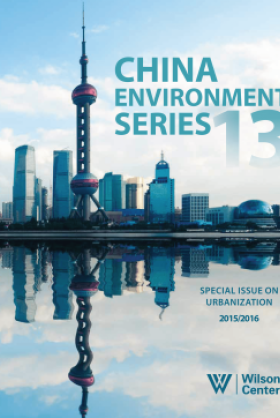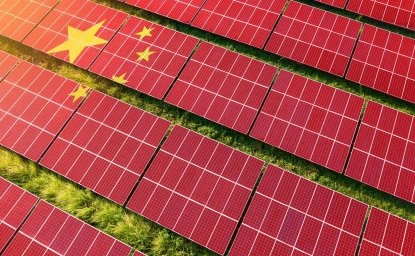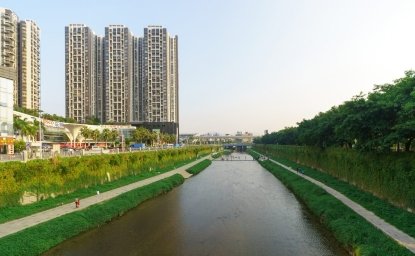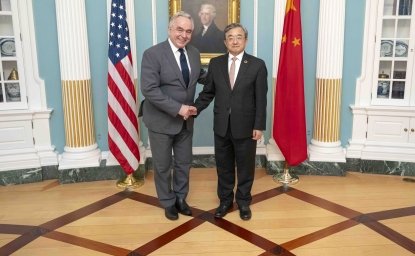China Environment Series 13


China Environment Series 13: Special Issue on Urbanization
A Peek Inside This Issue
Our lead feature article author, Russell Sticklor, presents an extensive piece on what I have long considered the “black box” of China’s energy-water nexus challenge, namely the energy footprint of cleaning, treating, and transporting water to quench the thirst of cities in China’s dry north. Iris Cheng and Li Shuo look at the water-energy-urban topic from a different angle, specifically examining how the effort to protect east coast cities from the crushing smog is pushing more coal development to China’s ecologically vulnerable west. As a result, coal’s expansion is threatening water resource availability in China’s north. In his feature box, Al Scott sees promise for lowering coal’s environmental impact through expanding U.S.-China cleaner coal cooperation.
Many of our commentaries and boxes focus on China’s massive urbanization—from Zhongjie Lin’s article on the new “New Town” movement in China to discussions of China’s perhaps not sufficiently green eco-cities (Cecilia Han Springer) to the Global Environment Facility’s sustainable city projects in China (Xiaomei Tan). Han Cheng ponders whether expansion of natural gas can deliver cleaner air for Chinese cities, while other authors discuss the potential of city-to-city cooperation between Wuxi and Düsseldorf (Olivia Boyd) and U.S.–China mayoral exchanges (Xiaobing Liu) to move Chinese cities onto a greener path. Ella Chou relates fascinating stories on China’s emerging green entrepreneurs to address pollution issues in cities and beyond. In a unique twist to our urbanization theme, Fred Gale and Dinghuan Hu talk about how the trend of “urbanizing” China’s pigs is opening up innovative ventures that could make the country’s pork industry less polluting and safer. Shiming Yang relates an insightful case of how the city of Foshan has wrestled with reducing pollution from its giant ceramics industries. As Chinese urbanites increasingly mistrust the quality of their water supply they turn to bottled water. Abigail Barnes looks at this trend and discusses the contamination scandals and growing environmental footprint of China’s bottled water industry.
The China Environment Series has long focused on important developments in environmental civil society in China. Thus, for this issue, we invited Yanmei Lin and Shaobo Hu to help us understand whether the provisions for public interest lawsuits in the amended Civil Procedure Law have empowered environmental NGOs in their fight against pollution. Katie Walsh discusses how NGOs and citizens also have more opportunities to improve environmental governance through an improving environmental impact assessment system. Tara Sun Vanacore’s feature box looks at the little-explored angle of youth’s involvement in China’s environmental movement.
This issue’s Spotlights on NGO Activism in China include some great work being done by the Global Environmental Institute (GEI) to bring U.S. and Chinese provinces together on climate cooperation. Former CEF research assistant Siqi Han helped the GEI authors (Caroline Jo, Qingchan Yu, & Christopher Dunn) create an infographic—The Power Couple—to summarize the low-carbon partnership they brokered between California and Guangdong. Greenpeace China contributes a story demonstrating its staff’s considerable patience and persistence in overcoming bureaucratic hurdles to install rooftop solar panels on top of their office building. Emissions from China’s growing car fleet becoming a dominant source of smog in China’s cities have underscored the importance of vehicle rating system tools like the one iCET has developed.
Author


China Environment Forum
China’s global footprint isn’t just an economic one, it’s an environmental one. From BRI investments in Africa and Asia to its growing presence in Latin America, understanding China’s motivations, who stands to gain - and who stands to lose - is critical to informing smart US foreign policy. Read more

Explore More
Browse Insights & Analysis
China’s Role in Financing the Energy Transition in the Global South


